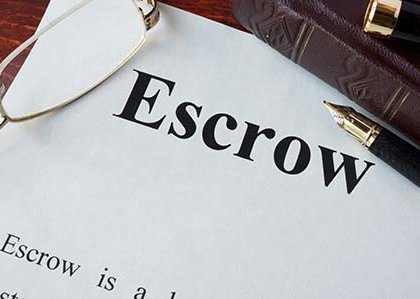Home Refinance Escrow is Different than a New Purchase Escrow in These 3 Ways
Home Refinance Escrow is Different than a New Purchase Escrow in These 3 Ways
 There are several differences between new purchase and refinance mortgages, which naturally means there are also many differences between the escrow process for each type. The names of each loan are rather self-explanatory, with a new purchase mortgage being used to buy a new home while a home refinance mortgage allows you to refinance the mortgage you are currently paying.
There are several differences between new purchase and refinance mortgages, which naturally means there are also many differences between the escrow process for each type. The names of each loan are rather self-explanatory, with a new purchase mortgage being used to buy a new home while a home refinance mortgage allows you to refinance the mortgage you are currently paying.
So, how exactly does home refinance escrow differ than new purchase escrow? Check below for three differences between each escrow process:
1. There are less closing fees involved in refinance escrow
Closing fees are one of the biggest differences between refinance and new purchase escrow contracts.
For instance, in refinance escrow, the closing fees are few and far between, with very little amounts charged for closing the loan and settling charges. Furthermore, these fees are almost always included in the final amount of the agreed refinance loan, which is quite different to new purchase escrow.
When in escrow for a new purchase loan, buyers must pay fees that are not included in the final loan amount. These fees are necessary for closing new purchase escrow, and buyers generally need to have the money ready for at least 60 days before closing occurs.
2. Refinance escrow involves fewer people
A refinance loan tends to be more straight-forward than a new purchase loan, and so too is the escrow process. This is because a refinance loan is mostly controlled by a mortgage company, while a new purchase mortgage involves both a buyer and seller.
Given the lack of a seller, the escrow process for refinancing involves fewer people, helping to make it much easier to close. There is no need for escrow agreements because of this, while the lack of a seller means there are fewer people involved in the process.
3. There is less paperwork involved with refinance escrow
For the all the advantages escrow offers, it’s hard to deny that the amount of paperwork is quite the hassle. Sadly, it’s a necessary component of the complex buying process, with various documents required throughout the escrow process.
From title and hazard reports to HOA documents to seller disclosure documents, there is an abundance of paperwork needed to enter and close new purchase escrow.
The same cannot be said for refinance escrow. Yes, there is paperwork involved, but most people already have a copy of these on hand because they needed them when originally securing the mortgage they are now attempting to refinance!
Inland Empire Escrow provides escrow services for a diverse variety of real estate transactions. With offices in Chino CA and San Bernardino CA, we quickly and professionally service all the surrounding cities such as Chino Hills, Ontario, Rancho Cucamonga, Upland, Riverside, Redlands, Colton, Grand Terrace, Yucaipa, and more. To hear more about our escrow services for residential, mobile home, short sale, REO, bulk/business sale, 1031 Exchange, or agricultural escrow, contact us today at (800) 917-9387.



